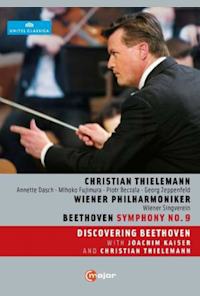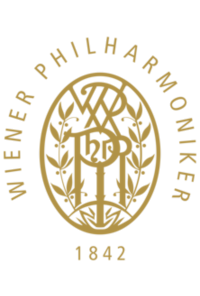

Beethoven, Symphonie Nr. 9 d-Moll op. 125
Partager
Musikverein (2016)Informations de l'organisation artistique (vérifiées par Operabase)
Mettant en vedette:
14 octobre 2016 (1 représentations)
Beethoven, Symphonie Nr. 9 d-Moll op. 125 by Various, ven. 14 oct. 2016, Du (2016/2016), Chef d'orchestre Christian Thielemann, Musikverein, Vienne, Autriche
Affichage des acteurs et de l'équipe pour 14 oct. 2016
Producteur
Direction d'orchestre
Distribution
Soprano
Mezzo-soprano
(Mezzo-Soprano)
Tenor
(Ténor)
Bass
(Basse)
Ensemble
Orchestre
Regardez maintenant sur
myfidelio.at






